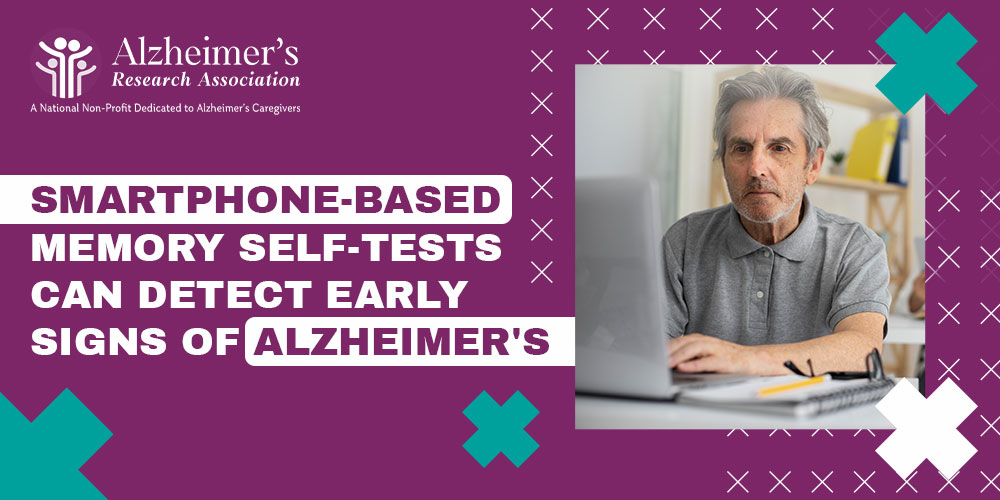Memory issues are the primary symptom of Alzheimer’s. It should come as no surprise that their intensity and course are crucial to both Alzheimer’s disease diagnosis and research. A medical practitioner supervises the performance of memory assessments in current clinical practice.
Individuals being tested must execute standardized activities in writing or speech, such as recalling and repeating words, spontaneously naming as many phrases as feasible on a specific topic, or drawing geometric objects as instructed. Professional supervision is essential for all these tests; otherwise, the results would be inconclusive. As a result, you cannot finish these tests by yourself at home.
Prof. Emrah Düzel, a medical technology entrepreneur and senior neuroscientist at the Magdeburg University and DZNE’s Magdeburg site, proposes a novel approach: it is beneficial if you can perform these tests independently and only need to visit your doctor’s office to evaluate the results. According to him, unsupervised testing would make it possible to track the condition’s progression more closely than is presently possible and assist in uncovering clinically meaningful memory impairment earlier. Early diagnosis is becoming more crucial in light of new choices for treatment and recent advancements in Alzheimer’s therapy.
Comparing remote at-home and supervised in-clinic testing
Besides his role in dementia research, Düzel is the Chief Medical Officer of “neotiv”, a Magdeburg-based start-up with which the DZNE has collaborated for several years. The company has created an app that allows memory tests to be completed independently without the assistance of a specialist.
Now available as a digital tool for doctors to help detect mild cognitive impairment (MCI), the software is scientifically proven, runs on smartphones and tablets, and is used in Alzheimer’s research. Even while MCI has virtually no impact on the affected person’s day-to-day activities, in a few years there is a higher chance that they will develop Alzheimer’s dementia.
Dr. David Berron, research group leader at DZNE and co-founder of neotiv, noted that as part of the validation process, they used unique remote and unsupervised evaluations, as well as a proven in-clinic neuropsychological test battery. They discovered that the innovative approach accurately diagnoses moderate cognitive impairment, or MCI, and is on par with in-clinic evaluations. With the help of this technology, doctors may be able to get information from patients that would otherwise be unavailable.
The journal “npj Digital Medicine” has recently published these findings [1].
Participants from the USA and Germany
Participants in the current study included 199 men and women over 60. They were based in Germany or the United States and participated in one of two long-term observational studies that address Alzheimer’s disease, the Wisconsin Registry for Alzheimer’s Prevention (WRAP) study at the University of Wisconsin-Madison, and DZNE’s DELCODE study (Longitudinal Cognitive Impairment and Dementia Study).
The study sample included people with a range of cognitive disorders as they would appear in everyday life: It comprised people in good cognitive health, MCI patients, and people with perceived but unmeasurable memory issues.
The diagnosis was based on standard examinations, such as memory and language tests. Furthermore, throughout a minimum of six weeks, each participant used their cell phones or tablets to complete repeated memory tests using the Neotiv app, whenever it was most convenient for them.
The researchers discovered that most WRAP participants were able to accomplish the unsupervised digital tasks remotely and felt satisfied with both the tasks and the digital platform.
Remembering images and perceiving differences
According to Düze, the Neotiv app’s tests are interactive and consist of three different kinds of memory challenges. These focus on several brain regions that Alzheimer’s can impact at different stages of the illness. It is the result of several years of research.
Essentially, these assessments require recalling visuals or spotting distinctions between photos the app shows. The German-US study team was able to compare the app’s outcomes with the results of the standard in-clinic examinations using a specifically created score.
Düzel added that their research demonstrated that this digital, remote, and unsupervised method can help effectively evaluate memory problems. If the digital evaluation results show memory impairment consistent with MCI, further clinical examinations are recommended. The individuals who test positive for memory issues and have results within the age-specific usual range can be granted the all-clear signal for the time being.
Additionally, this method will offer a digital cognitive evaluation tool for Alzheimer’s research that researchers may utilize in clinical investigations, as is now being done in Sweden, Germany, the United States, and other countries.
What’s next?
Additional research is in preparation or is already in progress. In addition to testing the novel memory assessment on more expansive study groups, the researchers plan to look into the possibility of using it to monitor the advancement of Alzheimer’s over an extended duration.
According to Berron, information about how quickly memory degrades with time is vital for medical doctors and people. Since the goal of new treatments is to delay the rate of cognitive deterioration, it is also crucial for clinical studies.
The scientist continued to discuss the challenges, noting that to progress with these self-assessments, clinical data from patients must be connected to real-world, off-clinic self-assessments. While it is not a simple feat, recent research indicates that they are making progress as a field.
Alzheimer’s Research Association is a non-profit organization dedicated to helping caregivers of Alzheimer’s disease and dementia. We provide the latest information and news about the illness and helpful tips to help caregivers cope with their daily caregiving challenges. We realize the most important thing that a caregiver needs is financial assistance. Therefore, we provide grants to caregivers to ease their financial burden. Caregivers can apply for grants here: Alzheimer’s Grant Application.
You can also help caregivers in their endeavor by donating as much as possible: Donation To Alzheimer’s Research Associations.


